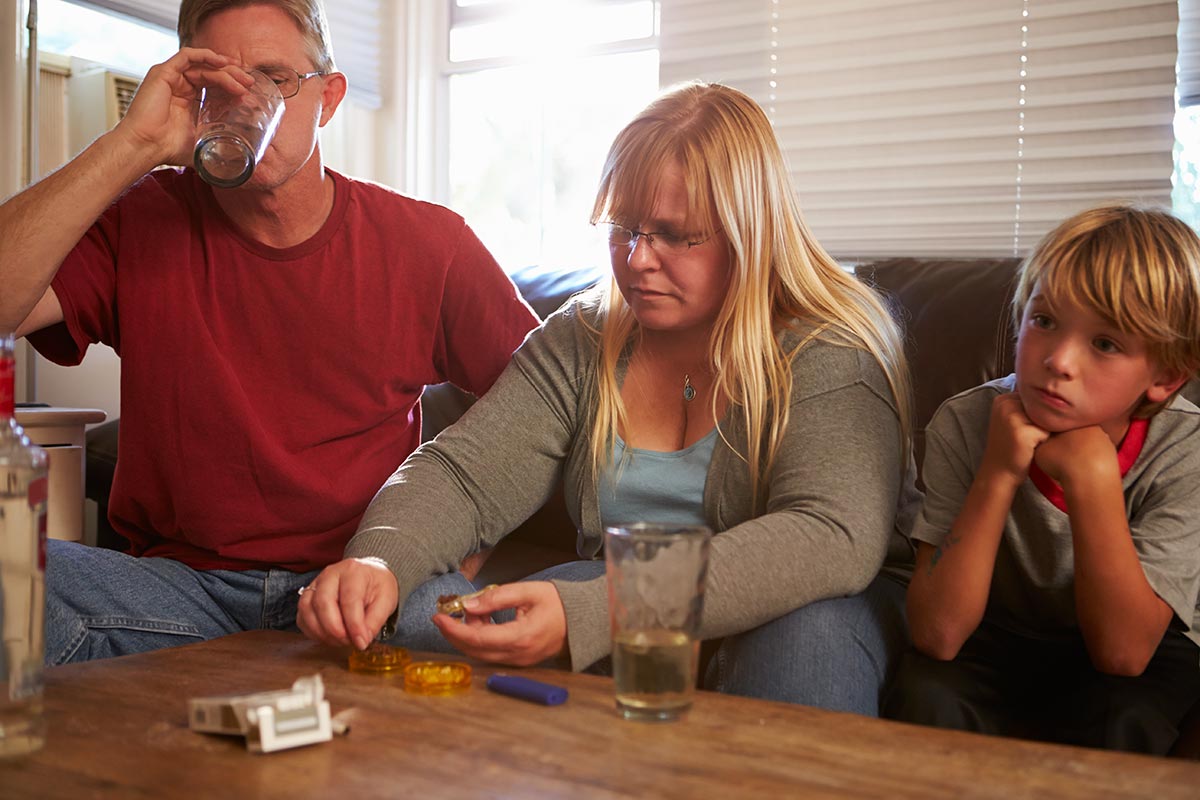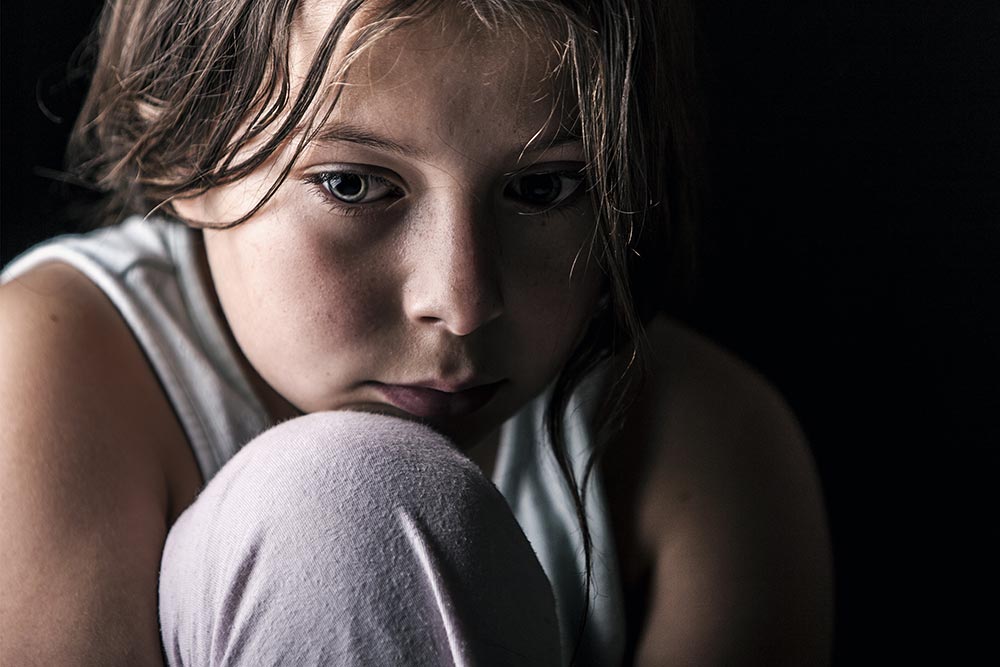How Drug Addiction Affects Children

If you or a partner is addicted to drugs, you are likely aware that addiction severely impacts your children. The National Survey on Drug Use and Health shows that over 8.3 million children under the age of 18 live in a household where at least one parent is addicted to drugs or alcohol. And, that addiction severely affects not only their currently lifestyle and emotional health but also their future development and mental health.
If you or a loved one is using, it's important that you know how your choices affect children in your life, and often permanently. This can help you to make better decisions when choosing to stay with an addicted loved one, when considering getting treatment, or when choosing therapy for the children of addicted parents.
Addiction hurts everyone involved, including users, but also, their families. Children, who often rely on their parents for every aspect of emotional, physical, and social support, are hurt the worst.
Emotional Withdrawal of Addicted Parents
Parents who are using or addicted to drugs or alcohol go through a phase known as emotional withdrawal. As drug addiction sets in, people experience emotional blunting (the real world doesn't seem real or it seems blunted after the high of the drug) and slowly begin to focus more and more of their attention on their substance of choice. This process results in classic addiction patterns of narcissism and manipulation in normal relationships, but with a dependent, results in them drawing away. Because a person who is unable to experience emotions as deeply is no longer motivated by them, children often experience parents withdrawing emotionally, becoming cold, and even becoming emotionally abusive without intending to be so.
This can significantly impact a child's development, especially if they are very young. Children often withdraw socially, are unable to discuss or talk about their emotions, and often experience high levels of stress. This puts children at risk of social disorders, low self-esteem, depression, bullying, academic difficulties, and behavioral problems stemming from an inability to cope with emotions.
Psychological Damage
Young children can be severely impacted by changing interpersonal relationships with parents. Addicted persons are more likely to adopt harsher parenting styles, are more prone to physical and emotional abuse, even accidental, and are more prone to being withdrawn and even not present. This creates an extremely different environment for a child, where they may have to care for themselves, take on new hierarchal roles, and may experience trauma and stress during crucial development periods.
This then goes on to cause actual changes in the brain and its development – causing lifelong psychological damage and disorders. While the effects and results vary a great deal, psychological damage can result in depression, anxiety, social behavioral problems, risk-taking behavior, inhibition problems, and a higher risk of addiction.
Changing Family Hierarchy and Roles
Drug addiction naturally changes hierarchy and family roles by shifting what specific members of the family accomplish or are responsible for. This results in a number of changes inside of a family dynamic, which can range from moderate to severe depending on the existing family dynamic.
For example, addiction in a family almost always results in less parental attention, even if one parent is not addicted or using. Because they have to care for the addicted person, take on that person's responsibilities, and internalize more stress, a sober parent is still spending less family time with children. As a result, children are left emotionally upset, without guidance, and in situations where they are more likely to act out for attention and as part of rebelliousness. The result is often dropping grades, bullying, fighting, and even criminal activity, especially with older children and teens.
Hierarchal roles become more damaged when both parents or an only parent becomes addicted, and children are forced to take on responsibilities for themselves, sometimes caring for their parents, handling tasks such as food preparation and cleaning, or caring for younger siblings. This forces children to 'grow up early', deeply impacting their mental and psychological health.
Increased Susceptibility to Addiction
Growing up in a household with an addict increases a child's susceptibility to addiction through exposure and increased trauma. Both of these factors contribute a great deal towards making a child more likely to grow up into an addicted adult, and both negatively affect mental and psychological health. Negative experiences and poor mental health also contribute significantly to self-medication or using drugs and alcohol to feel better or 'normal.
Exposure to Substances – Exposure is a crucial and important factor in addiction, but often an overlooked one. Children who are raised in a household with addicted parents are frequently exposed to the drug, seeing it used, having access to it when parents are high or even passed out, and therefore significantly more likely to try it or other drugs on their own. Repeated exposure to parents using, and childhood rationalizing of anything parents do as okay, can also lead to a great acceptance of drugs and addiction, and therefore an increased likelihood of trying and using the drug long-term themselves.
Trauma – Childhood trauma is a well-understood factor in addiction. Children of addicted parents often face significant trauma, including emotional instability, car accidents, violence, domestic abuse, parental mood swings, parents blacking out or overdosing, breaking the law for parents, unstable housing conditions, unstable food and so on. Even in relatively stable households with high-functioning addicts, children still experience significantly more trauma than they would in a normal household. The ACE (Adverse Childhood Experiences) study directly tracks childhood trauma, especially trauma before the age of 14, as directly impacting mental health and susceptibility to addiction later in life.
Self-Medication – Children who are raised by addicts are more likely to feel lonely, depressed, and anxious. They're also less likely to have positive self-esteem, less likely to have friends, and more likely to be bullied. Combined with emotional withdrawal from parents and often emotionally cold or harsh parenting styles and potential domestic abuse at home, and many children of addicts are in emotional and mental pain. Substance use, whether alcohol, prescription pills, or street drugs like heroin, are often used as a form of self-medication to dull or numb pain, increase social acceptance, or just to feel good. Because many children of addicts also experience rebellious phases and have issues with reckless behavior and inhibition, this can be extremely problematic and dangerous.
Breaking the Cycle and Getting Help
If you or a partner is addicted to a substance, you are actively hurting children in the household – but it doesn't have to be that way. You can seek out professional treatment and get help, for you and your family, so that you can get better and heal together.
A quality rehab program offers drug addiction treatment including medically supported addiction detox, cognitive behavioral or other forms of behavioral therapy, group therapy, and counseling to help you learn how to beat addiction, and how to live a healthy and happy life without drugs. Most modern rehab facilities also offer family therapy and even have care available for single parents with young children. Family therapy can help you and your family to recover, by tackling not only addiction, but also its negative effects on the family, including hierarchal roles, negative impacts to relationships, and psychological damage caused by addiction to children.

